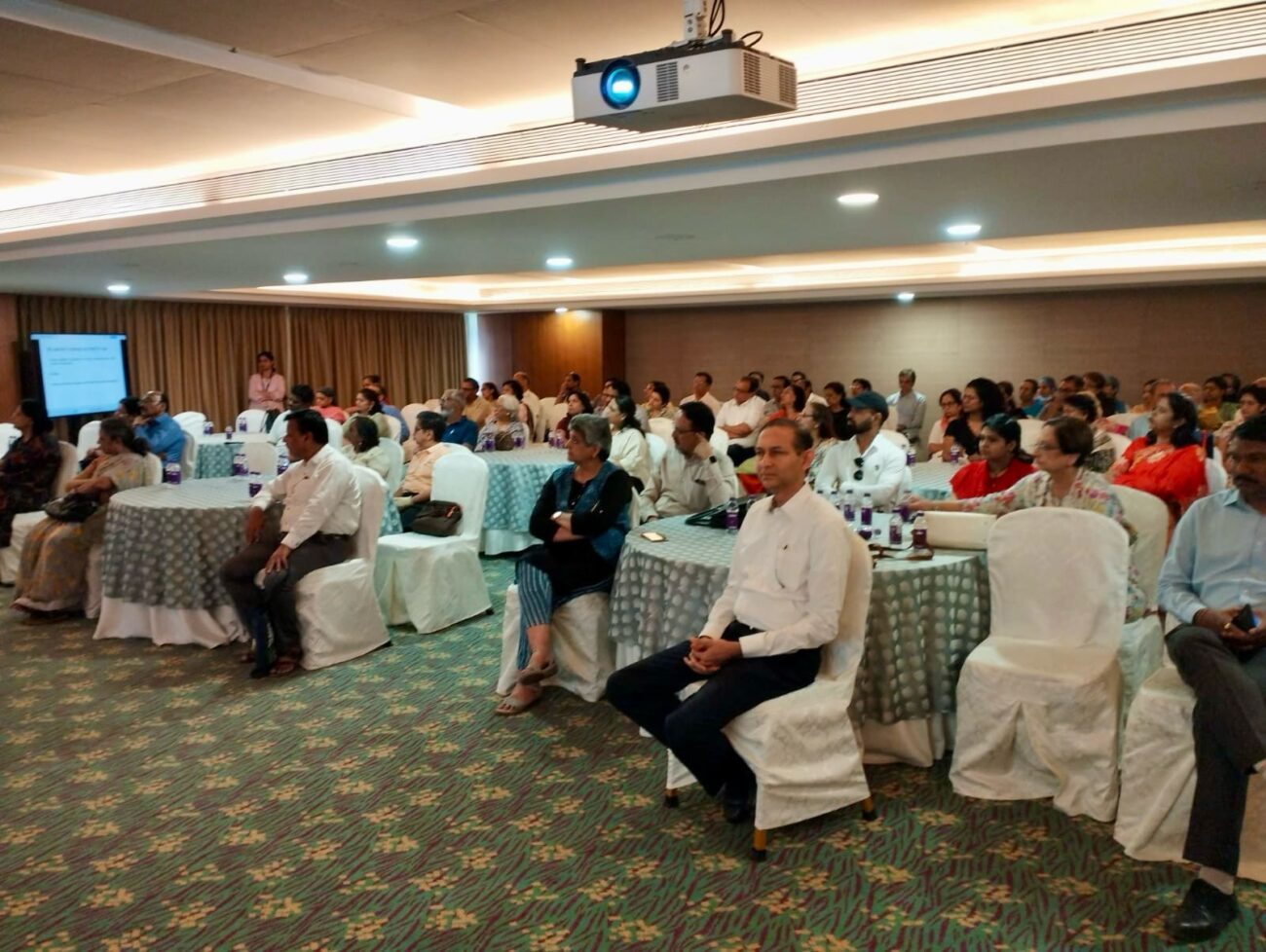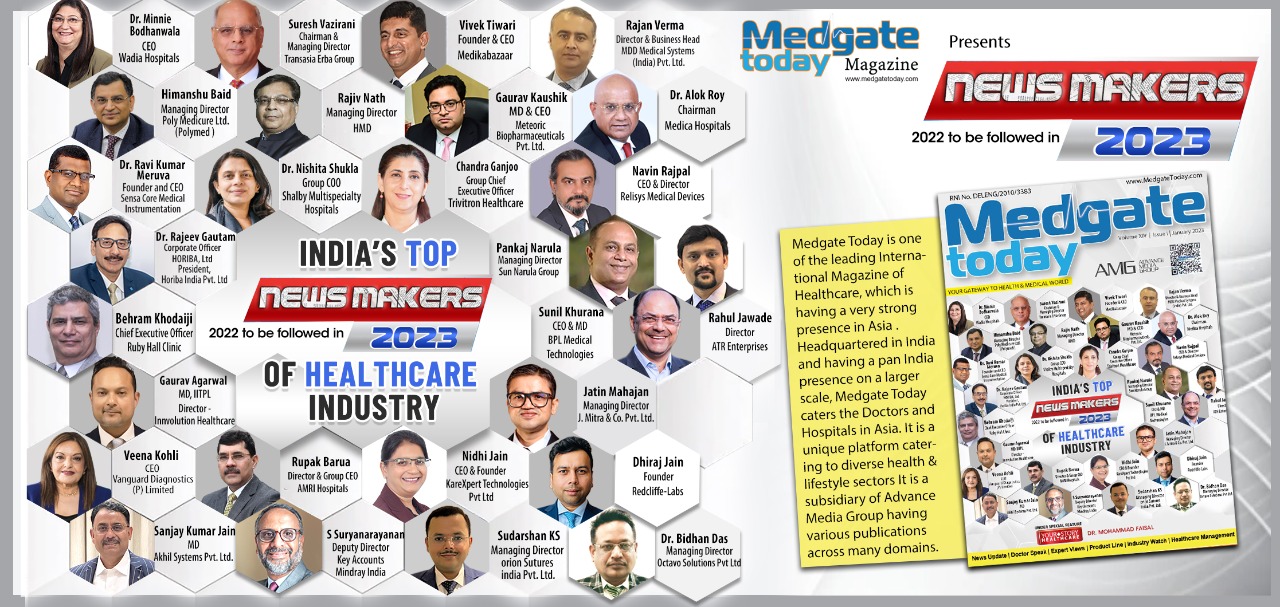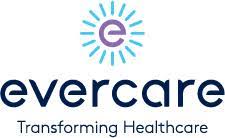MEDICA and COMPAMED Hold their own in a Challenging and Demanding Market Environment
The international decision-making elite of the healthcare industry demonstrates presence The demand market for medical technology and medical products is becoming increasingly challenging and discriminating worldwide. Providers are adapting to this on a flexible basis and
The international decision-making elite of the healthcare industry demonstrates presence
The demand market for medical technology and medical products is becoming increasingly challenging and discriminating worldwide. Providers are adapting to this on a flexible basis and furnishing appropriate answers that include innovations for modern and cost-efficient medical care. Visitors were able to see this for themselves at MEDICA, the world’s largest medical trade fair, and COMPAMED, the leading trade fair for the medical technology manufacturing supplier market, both of which took place in Düsseldorf. The slogan “Be Part of the No. 1” was embraced by experts from all areas of the health industry, who provided for a slight increase in the number of visitors to the fully utilised exhibition halls over the four days of the fair
(18–21 November 2019).
“MEDICA and COMPAMED are the no. 1 market platforms for international business. Through their exhibitor and visitor numbers, they have confirmed their role as growth drivers for exports. This is in the interests of suppliers, of whom a great deal is currently being demanded in this market environment. Increasing trade restrictions, uncertainty in regard to Brexit, growing pressure on margins and other challenges, including ever more complex approval procedures for medical products, should be mentioned in this context,” says Wolfram Diener, Managing Director of Messe Düsseldorf, summing up the trade fair environment. Some 5500 exhibitors at MEDICA and nearly 800 at COMPAMED ensured a new record in participation. Something that was seen as positive particularly from the point of view of the many international exhibitors was the fact that more than 90 per cent of the 121,000 trade visitors have decision-making authority. Two-thirds of the visitors came from abroad, representing some 170 countries.

Numerous delegations with senior decision-makers from regions including Asia (such as Thailand’s Deputy Prime Minister and Trade Minister Jurin Laksanawisit), North Africa and South America contributed to this high degree of internationality, which very much accommodates the export interests of many suppliers.
“MEDICA is not only the most important event of the year for many of our members from the medical technology sector. With its many visitors and exhibitors, it is also the world’s leading trade fair for the industry”, says Jörg Mayer, Executive Director of the German industry association SPECTARIS. Together with Germany’s Association for Electromedical Technology (ZVEI), SPECTARIS organised the MEDICA TECH FORUM in Hall 12, which dealt with questions including international market access and regulatory requirements for medical technology and was well received by visitors. In this regard, there was a particular focus on the national markets of China and Russia.

Bringing together what belongs together
There was a great deal of positive feedback regarding the new allocation to the exhibition halls according to topic. The large national and international joint exhibition areas were given more space in Halls 15 to 17. The manufacturers of surgical instruments were moved from Hall 13 to Halls 10 and 11 so that they could be closer to the suppliers of complete OR solutions and imaging processes, given the common ground they share thematically. The MEDICA segment relating to information and communication technology for the first time was presented with its exhibitors and specialist forums in Hall 13 (previously in Hall 15), linking it directly with the halls dedicated to medical technology and electro-medicine.

“The new concept is confirmed by the consistently high number of visitors in the halls. The MEDICA HEALTH IT FORUM and the MEDICA CONNECTED HEALTHCARE FORUM were real hotspots, with high attendance on all days and a total of more than 10,000 visitors”, says Horst Giesen, Global Portfolio Director for Health & Medical Technologies at Messe Düsseldorf, who was pleased with how well the new organisation of the exhibitors and forums was received. The thematic reorganisation was inspired by the fact that health IT is being regarded less and less as an isolated discipline. Particularly in the areas of electro-medicine and medical technology, many innovations are software-driven (increasingly with the use of artificial intelligence) and equipped with the necessary interfaces for secure integration into network structures.
Focus on robotics and how this technology will be used in future
An example of this development is medical robotics applications, which represented a content focal point at MEDICA 2019 and will become even more important in future. KUKA, one of the leading providers of robotics and automation solutions, used the MEDICA platform to demonstrate a variety of possible applications for its lightweight medical robot “LBR Med” in the final round of its “Innovation Award”. The spectrum of award topics ranged from a robot platform with magnetic capsules for early detection of colon cancer to an application that provides robot-supported laser treatment for varicose veins and robot-assisted, personalised back massages. “temi” was another innovation at MEDICA. This home-care robot is manufactured by Medisana and is a digital everyday aid that aims to help people remain in their own homes far into old age.

Robert Geiger, Managing Director of Aktormed, explains that use of robots is not intended to replace doctors but to provide optimal support for the “human factor”: “Our robot-assisted assistance systems allow the surgeon to perform minimally invasive, highly precise operations while reducing the strain on medical personnel to the greatest extent possible.” The company sees itself as market leader in the area of robotic camera control, has been a MEDICA exhibitor since 2013 and this year was located in the middle of the electro-medicine area in Hall 10 for the first time. “We are interested in B2B relationships. The success of our MEDICA contacts can therefore only be assessed in an interval of one to two years. Looking back on our initial years at the fair, we are very satisfied,” says Robert Geiger.
The ground-breaking topic of medical robotics is now included in the exhibitor product categories of MEDICA. In this way, companies with expertise in “Medical Robotics”, such as KUKA, Aktormed, intelligent motion and Stryker, can now be quickly identified by visitors.
Compact, interconnected and artificially intelligent
Compact solutions for better networking of the participants in the healthcare sector, such as for data transfer between doctors and for communication between doctor and patient, are also on the advance. Many MEDICA exhibitors demonstrated what these ‘mHealth’ (mobile health) applications, which are very much in line with current trends, are already accomplishing today in order to accelerate care and make it less complicated. Some examples to be mentioned here in particular would be the young companies participating in the MEDICA START-UP PARK, the “Disrupt” sessions at the MEDICA CONNECTED HEALTHCARE FORUM and the MEDICA App COMPETITION. Their creative ideas are likely to have attracted the attention of potential investors and business partners. The range of topics included medically certified wearable’s for monitoring various body parameters as well as virtual reality applications for use in rehabilitation.

In the final pitches of the 8th MEDICA App COMPETITION, the “SynPhNe” team (Singapore) won the contest for the world’s best health app solution. They developed the first networked, portable solution that trains both the brain and the muscles in mobilisation therapy. This will help increase the functional independence of people with disabilities, such as those who have suffered a stroke or multiple injuries.Whether robotics or mobile health, these areas of technological application will not be able to move forward without improvements in artificial intelligence (AI) and machine learning. That’s why AI, deep learning and big data were also important topics at the expert forums, such as at the MEDICA LABMED FORUM. The practical use of AI in digital pathology, which promises particular benefits in the diagnosis of cancer, was highlighted here.
Conference highlights: Getting to the heart of the foremost topics
The dominant topics of the healthcare industry and individual medical specialist interest areas were also reflected in lectures and discussions at the accompanying congresses and conferences. A few examples of these would be the 42nd German Hospital Day with more than 2000 decision-makers from clinic management (e.g. on structural and financing issues as well as presentations on digitalisation projects in clinics), the MEDICA PHYSIO CONFERENCE and the MEDICA MEDICINE & SPORTS CONFERENCE. Sebastian Kienle, one of the world’s best triathletes, was among the celebrity guests. He provided insights regarding the extent to which ‘performance medicine’ drives elite performances and successes such as the bronze medal he recently won at the Ironman competition in Hawaii. Kienle relies on the latest technologies for his training. He reported on the data, generated in real time, which he uses to guide his preparation, competitive strategy and recovery after an event.
No digitalisation in medical technology without suppliers
The basis for such outstanding athletic performances using cutting-edge technologies is also laid by numerous companies, which presented their innovations at the parallel fair COMPAMED in Halls 8a and 8b. Nearly 800 exhibitors from 41 nations set a new record for the leading international industry platform for suppliers to the medical technology industry. This area is currently benefiting above all from the demand for increasingly powerful components and digitalised solutions for mobile devices for diagnostics, therapy and laboratory equipment.
“Micro technologies are key to the digitalisation of medical technology. Without miniaturised components and processes that enable ultra-precise manufacturing, portable and networked devices that transmit and evaluate vital parameters or medication would not be possible,” explains Dr. Thomas Dietrich, Executive Director of the IVAM Professional Association for Micro technology.
The strong demand for miniaturised components, such as tiny components for so-called lab-on-a-chip applications, was also highlighted by the range of innovations of the 55 exhibitors participating in IVAM’s joint exhibition stand. Current trends on the supplier market were also addressed in the two specialist forums integrated into COMPAMED, which offered a comprehensive overview of all aspects of the development, manufacture and approval of medical products – from electronics manufacturing to machining of plastics and metal all the way through to regulations.

Medgate Today Magazine
Medica 2019 Visit
MEDICA is most awaited & largest medical exhibition in the world. Healthcare fraternity world over ritually and annually pays visit to this grand event to witness latest global technological innovations and advancement , share feedback and suggestions with healthcare companies, offer policy inputs on global healthcare and develop & strengthen business partnerships.
This year witnessed participation of 6000+ Exhibitors and registration of 121,000 Global visitors.
MEDICA witnessed many conferences on global healthcare way forward.
MEDICA Organisors while thanking all stakeholders for their participation, also informed international healthcare media of his resolve to reach out many global destinations which would catalyse and further the technological Upgradation of regional healthcare hubs . He invited all the global exhibitors to be part of these new events in the interest of global healthcare.
In an informal discussions with peer healthcare media on the sidelines of MEDICA , Mr Afzal Kamal ( Editor-Medgate Today), who is in integrated global healthcare mission (IGHM) mode seconded the Views of various Companies CEO’s view on reaching out new global healthcare destinations.





